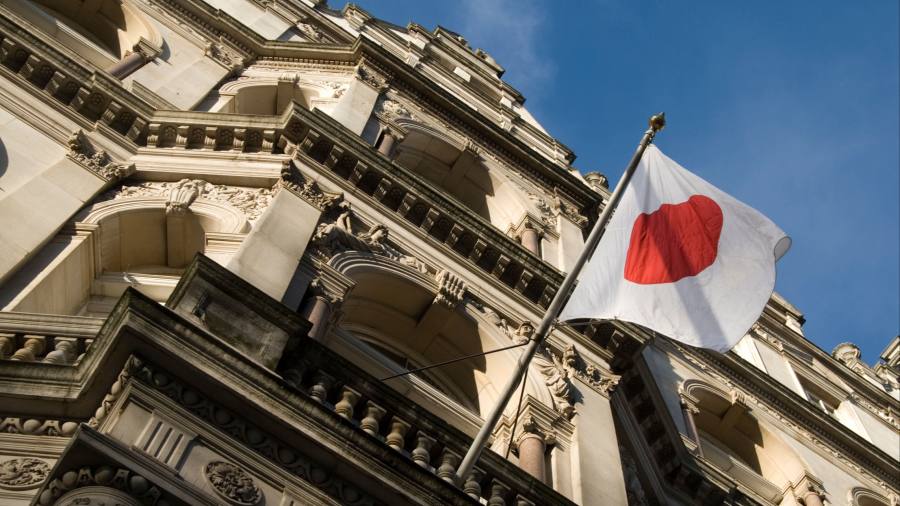
Receive free Japanese politics & policy updates
We’ll send you a myFT Daily Digest email rounding up the latest Japanese politics & policy news every morning.
The Japanese government has ambitions to strengthen its diplomatic service with a huge hiring spree, part of an overseas charm offensive intended to counter the global rise of economic nationalism and respond to a more assertive China in the region.
The plan, which was laid out in a paper by the ruling Liberal Democratic party in April and formally adopted as foreign ministry policy in June, sets a target of 8,000 Japanese diplomats by 2030, a 20 per cent increase from current levels.
These new envoys, many of whom may have to be lured to the public service mid-career from more lucrative jobs in the private sector, will be charged with protecting Japan’s interests in what the government described as “the most severe and complex” security environment of the postwar era. The effort will focus in part on bolstering the foreign ministry’s ranks of cyber specialists and information warfare experts.
The paper unveiled in April highlighted that 120 of Japan’s global missions had fewer than 10 employees despite the critical importance of “building strong personal connections with the governments of partner countries on the front lines” of intensifying geopolitical competition.
These missions, the paper concluded, required “drastic expansion” of personnel, in particular as Japan prepared for greater engagement with the developing world.
The envisaged duties of the newly beefed-up diplomatic corps will include implementing the strategic disbursement of overseas development aid and facilitating transfers of military equipment as Japan attempts to establish itself as a significant defence exporter.
The 10-page policy paper bemoaned the fact that, in a more dangerous and unpredictable world, the role of Japan’s diplomatic missions in information gathering and information security had significantly expanded, without a corresponding enlargement of embassy staff.
Multiple foreign ministry officials echoed that complaint to the Financial Times, saying that a hiring spree was long overdue. But they warned that the effort was likely to encounter significant headwinds, as the nation’s brightest and most internationally minded graduates continued to favour jobs in banks and trading houses.
The challenge of inspiring the next generation to join the ranks of Japan’s foreign service will be further complicated by the country’s demographic picture, with a declining population filtering through to a tighter labour market and making it more difficult for employers — including the diplomatic service — to attract candidates.
“The problem this plan faces is that Japan’s working population is now shrinking and everyone is competing harder for good people. There is a generation now that is much less enthusiastic about public service,” said one career diplomat who added that a number of colleagues had recently quit for jobs in the private sector. “I think it is a tall order.”
The LDP’s paper maintains a long tradition of Japan comparing itself with the outside world as a guideline for policymaking. Japan’s diplomatic staffing strength lags far behind those of the US, UK, France, Germany, China and Russia. The target of 8,000 diplomats was calculated to raise Japan’s enhanced diplomatic corps from the bottom to the middle of that group by staffing.